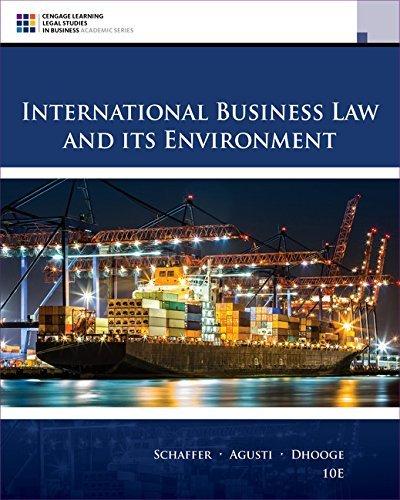Mousavi immigrated to the United States from Iran and became a naturalized citizen in 1999. He operated
Question:
1. Why was the IRA investigation of Mousavi's unreported income from this transaction relevant to the conviction of violating the IEEPA?
2. Does it matter that Mousavi's contacts and arrangements were through an individual in Kuwait?
3. Do you think the court's decision adequately prevents an innocent person from being "ensnared" in a complex legal web of technical regulations that he or she doesn't understand?
Fantastic news! We've Found the answer you've been seeking!
Step by Step Answer:
Related Book For 

International Business Law And Its Environment
ISBN: 9781305972599
10th Edition
Authors: Richard Schaffer, Filiberto Agusti, Lucien J. Dhooge
Question Posted:





